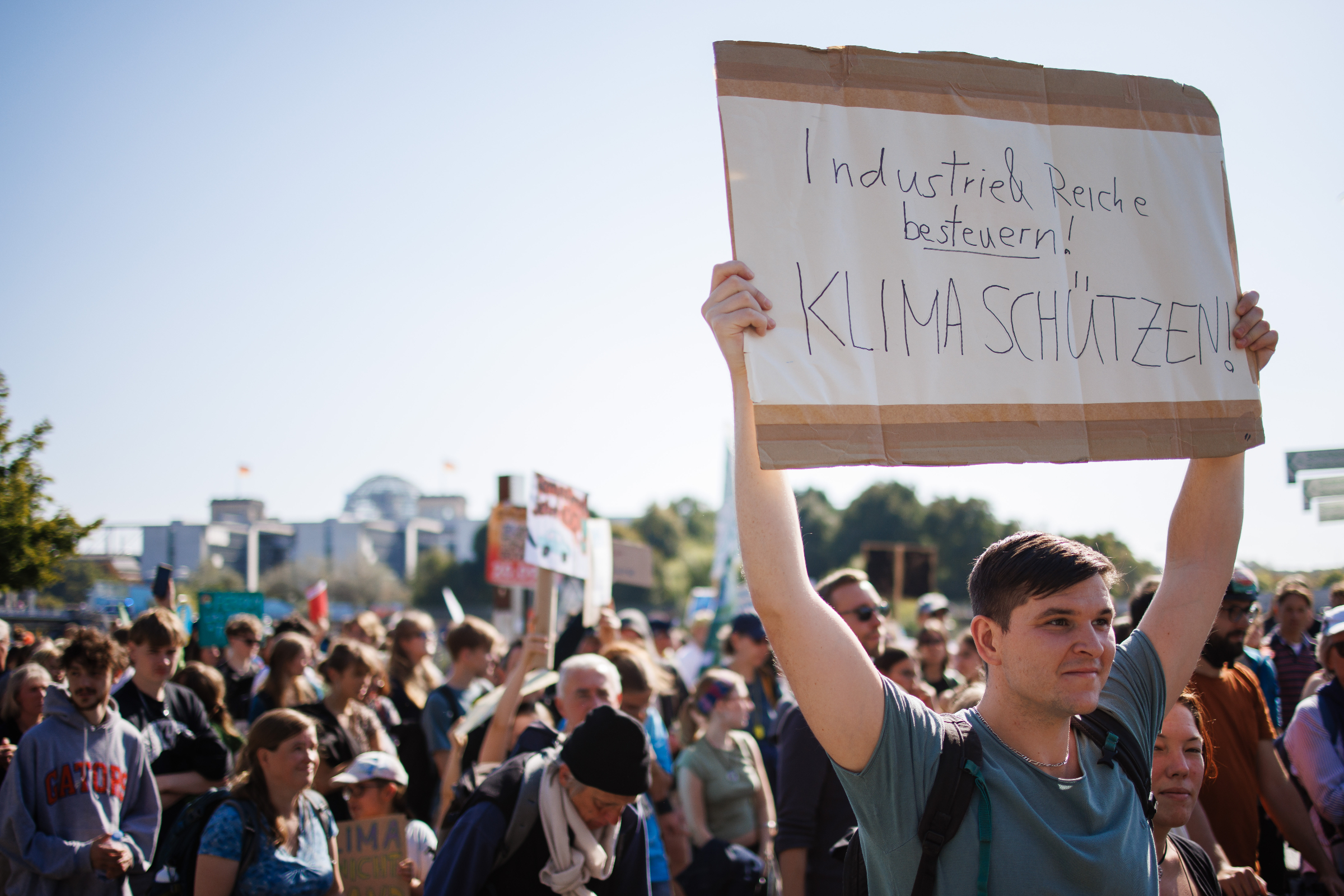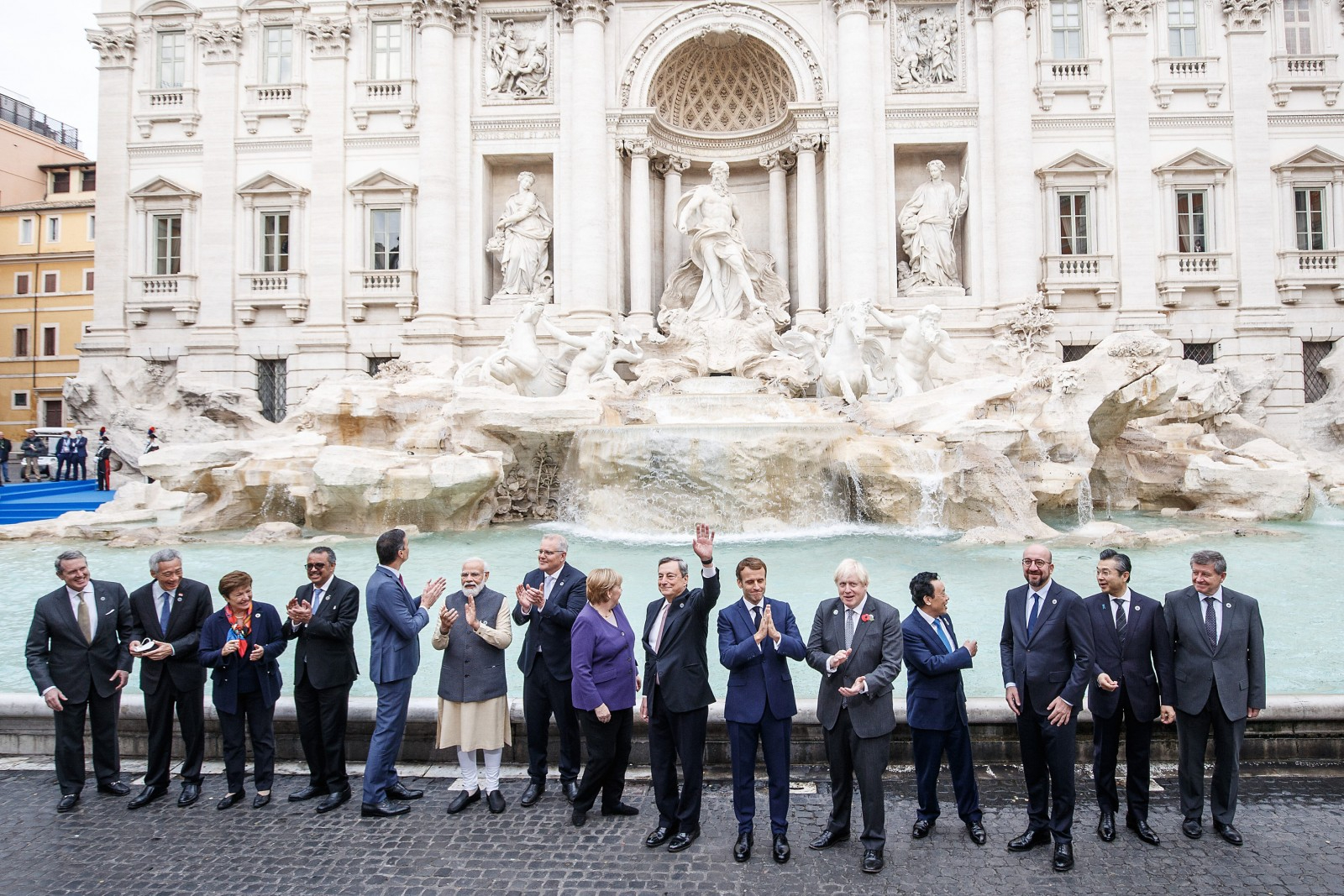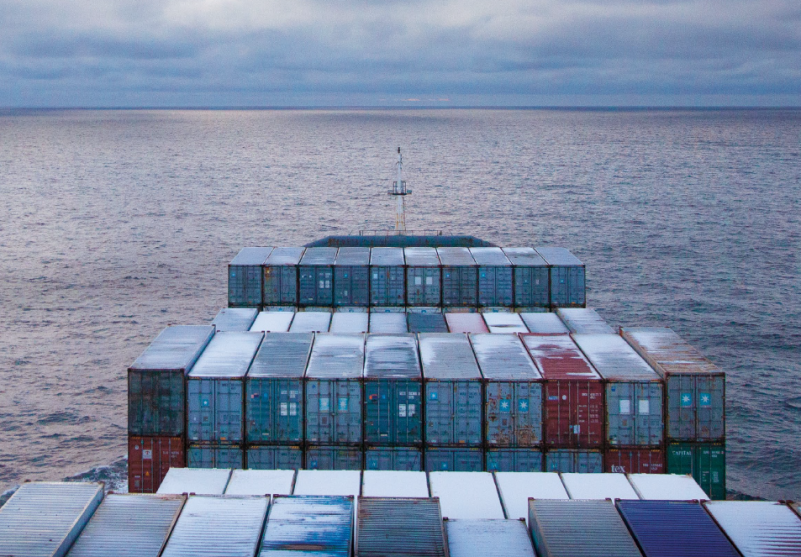In mid-October, the over 120 member states of the OECD “Inclusive Framework on BEPS”, and ultimately also the G20 countries, decided to introduce a new international minimum tax. Phrases like “Historic agreement!”, “Global tax revolution!”, “Paradigm shift!” rang out in the European or North American public arenas. The enthusiasm was less on other continents: tax justice NGOs from Africa and Asia decried the OECD agreement as a “Tax deal of the rich” and the G24 countries – an alliance of African and Latin American governments from developing and transition countries – were critical of the loss of national tax autonomy that would come with the new rules. It will mean that countries that retain their unilateral digital taxes or introduce new ones would face the pressure of OECD sanctions. In reaction to what the South deems an inadequate deal, the content of which was largely shaped by a compromise between the USA, Germany, France and the leading corporate tax havens such as Ireland, Holland, Luxembourg and Switzerland, the G77 countries (the group of developing countries at the UN) tabled a resolution calling for an intergovernmental body under the UN umbrella to take over political leadership in international tax policy matters from the OECD and which would embody much better representation of former colonial States in the Global South.
OECD minimum tax ineffective from a development policy standpoint
From the standpoint of the Global South, the reform is inadequate for two main reasons. First, the entire commodity trading industry and financial sector have been left out of the tax base redistribution. This means that countries in the Global South, which are heavily dependent on the exploitation of raw commodities, will obtain no additional rights to tax the profits of the commodities industry. Moreover, Pillar One (redistribution of corporate profits from countries of domicile to market countries) applies only to corporations with an annual turnover of 20 billion dollars and profitability of over 10 per cent. Globally, this affects only about 100 corporations – in Switzerland, presumably only such giants as Novartis, Roche, Nestlé and Schindler. This redistribution will benefit mainly rich countries with huge domestic markets like the USA or Germany. Second, the minimum tax rate of 15 per cent foreseen under Pillar Two is set far too low and can only be applied by countries where the head office of the particular corporation is domiciled. And even so, only when these corporations report an annual turnover of more than 750 million. For the Global South, what it sees as the failed OECD reform spells disaster: developing countries are suffering badly from the corporate profit shifting that is possible under the current tax system. According to a calculation done by the economists Petr Janský und Miroslav Palanský (2019), those countries are losing tax revenue of about 30 billion dollars annually through profit shifting to corporate headquarters in the North. But better domestic revenue mobilisation – as defined also by Switzerland among the goals of its technical development cooperation — can only succeed if the outflows of taxable revenue to low-tax jurisdictions are halted. For 40 years now, multinational corporations have been constantly expanding these tax avoidance practices, kindly assisted by their countries of domicile in the Global North. The reform pillars now approved by the OECD and G20 countries will change nothing about this.
Nestlé, Glencore, Socfin: new tax avoidance cases in Switzerland
The insufficiency of the new OECD rules has been borne out by recently revealed tax avoidance cases involving corporations like Socfin (palm oil and rubber trade), Glencore (oil, copper, coal and other commodities) and Nestlé (food) in each of which low-tax jurisdiction Switzerland plays a key role. The study entitled “Cultivating Fiscal Inequality”, recently published by Bread for All, the German Tax Justice Network and Alliance Sud, shows that Socfin declares the bulk of its profits for taxation in Freiburg in Switzerland. Most of the work of the corporation, however, takes place on plantations in Sierra Leone, Liberia or Cambodia, which is where, by extension, value is created. The example of Nestlé in Morocco shows just how indispensable it is to have a strong national fiscal administration: owing to unfair transfer pricing calculations, the tradition-rich Swiss corporation could be liable for record-breaking supplementary tax payments of 110 million dollars. Had the tax authorities been unable to look closely at the corporation’s dealings, this would not have been possible. Yet this is precisely the type of resources that many developing countries lack. Another report published in late October by CICTAR (Centre for International Corporate Tax Accountability and Research), a research NGO, shows profit shifting by the Glencore commodity company from Australia to the Canton of Zug, linked to its coal business. Although there is no direct development policy context in this instance, the study shows how Glencore’s canton of domicile derives direct tax benefit from one of the most climate-damaging businesses in existence. Through its low-tax jurisdictions for multinational concerns, Switzerland is hampering the equitable environmental transformation of global society not only in economic terms but also directly through policy.
Switzerland as advocate for corporations at the OECD
In a coalition with other low-tax jurisdictions like Ireland, Luxembourg, Holland or Hungary, Switzerland always favours the most lax possible reforms in fiscal policy negotiations at the OECD. The country did so again during the most recent reform process. This is revealed in a letter, now made public, sent by SVP Finance Minister Ueli Maurer to the new OECD Secretary-General Mathias Cormann in August. In it, Maurer demands deductions from the minimum tax for members of conglomerates that undertake Research & Development (which favours the interests of the Basel pharmaceutical giants) and suggests an additional rule whereby multinational corporations could deduct from their profit taxes any CO2 taxes they have paid. A preposterous suggestion, considering that through their tax avoidance practices, multinational corporations are undermining global efforts to counteract the climate crisis and would at the same time be compensated for their incentive taxes, which are targeted precisely at climate-damaging practices so as to encourage companies to invest in green technologies.
Cormann’s reply reveals the crazy nature of Maurer’s suggestion. “Carbon taxes are taxes on inputs [what is taxed is the CO2 emitted during production, DG’s note] not income [i.e. corporate profits, DG’s note] and therefore do not fit with the conceptual or design framework of the two pillars”. It is all the more remarkable that Maurer was obviously more successful with his first demand, that of introducing new deductions from the minimum tax for pharmaceutical corporations. In the wake of the OECD agreement, the Federal Department of Finance proudly announced the following in the Handelszeitung as a Swiss success in Paris: by being able to treat personnel and infrastructure costs as deductions, corporations reduce their taxable income by 10 or 8 per cent over the first five years following the introduction of the minimum tax (and thereafter by 5 per cent each time). These deductions will be at the expense of the Swiss tax administration. Not only is the responsible State Secretariat for International Finance (SIF) in the Federal Department of Finance (FDF) not representing the interests of a global community at the OECD, it is not even representing the national interests of Switzerland as a whole, but quite simply and exclusively those of the multinational corporations domiciled here. What this shows is that anyone in Switzerland who stands up for a more just global tax policy and a paradigm shift in the local low-tax jurisdiction cannot rely either on the OECD or on the Federal Council. This is an opportunity for progressive political forces and civil society.
How Switzerland could enhance the OECD reform
The encouraging aspect of this is that the minimum tax calculated by the OECD could be improved with relatively few technical changes such that it would also benefit even poor countries where production takes place. The vehicle for this would be the Minimum Effective Tax Rate (METR) for multinationals – developed by civil society players in international cooperation with economists and tax lawyers. Basically, it relies on the same technical concepts as the minimum tax of the OECD. But first it remodels the OECD’s minimum tax in such a way that the METR can be implemented by individual countries or jointly by groups of countries. Unlike the implementation of the OECD’s Pillar Two, this would not require a new multilateral agreement or changes to existing bilateral double-taxation agreements – yet another flaw in the OECD concept. Second, the METR is equally applicable to countries of domicile of corporations, countries that are sales markets and those where production takes place. This entails first calculating a corporation's total undertaxed profits. Undertaxed profits are defined, as in the OECD proposal, in terms of a minimum tax rate. Whatever falls below this rate is deemed undertaxed. Whereas the OECD’s Pillar Two prescribes a minimum tax rate of 15 per cent, the METR would presuppose a rate of 25 per cent, being guided by the current global average, which is just below that.
In a second step, these undertaxed profits would thus be allocated to those countries in which a corporation effectively creates its value. This is based on formulary apportionment, which considers (a) the capital base (physical assets), (b) payroll, and (c) sales of a corporation in a particular country.
In a third step, individual countries could autonomously tax the profits apportioned to them in accordance with their national tax legislation. This would ensure, at least in part, that a multinational corporation’s profits are in fact also taxed in the place where a certain profit-generating value is produced (in the countries of production) or sold (the market countries). The question arises however, as to whether countries that implement the new OECD rules can simultaneously introduce a minimum tax rate higher than the 15 per cent OECD rate. This would have to be a condition, if the METR is also to benefit developing countries, most of which currently have profit tax rates above 25 per cent. But it is left up to the free will of member countries of the OECD Inclusive Framework to decide whether they wish to introduce the OECD minimum tax rate.
Assuming that Switzerland were politically prepared to rethink its basic business model for dealing with multinational corporations, the country would be predestined for the introduction of the METR. As a leading host country to multinational corporations, it possesses the requisite information about their business practices to be able, at the fiscal policy level, to press ahead with implementing the METR. Besides, the country would be well-placed to find partner countries for this system, as Switzerland’s corporate taxation considerably influences the fiscal situation of a great many countries that are linked to this country through the respective multinational corporations. Were Switzerland to seek these partners, for example among the countries in the Global South where its corporations exploit commodities, or among emerging countries that serve as market outlets for Swiss consumer goods producers of the likes of Nestlé or Procter & Gamble, introducing the METR would considerably enhance the efficaciousness of Switzerland’s development policy.








